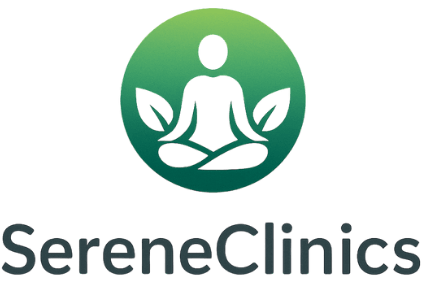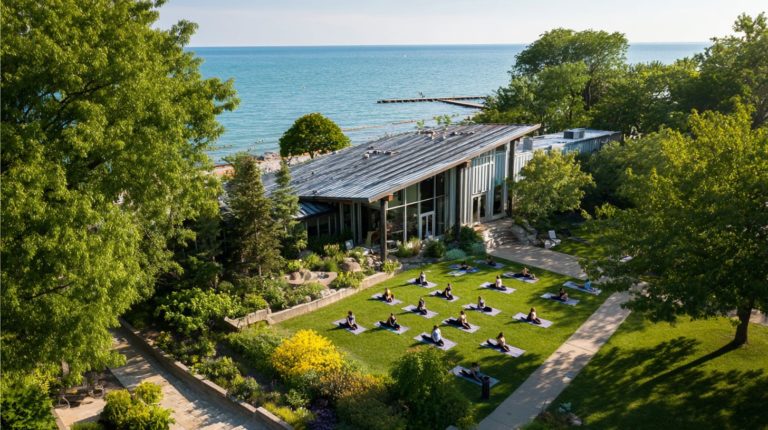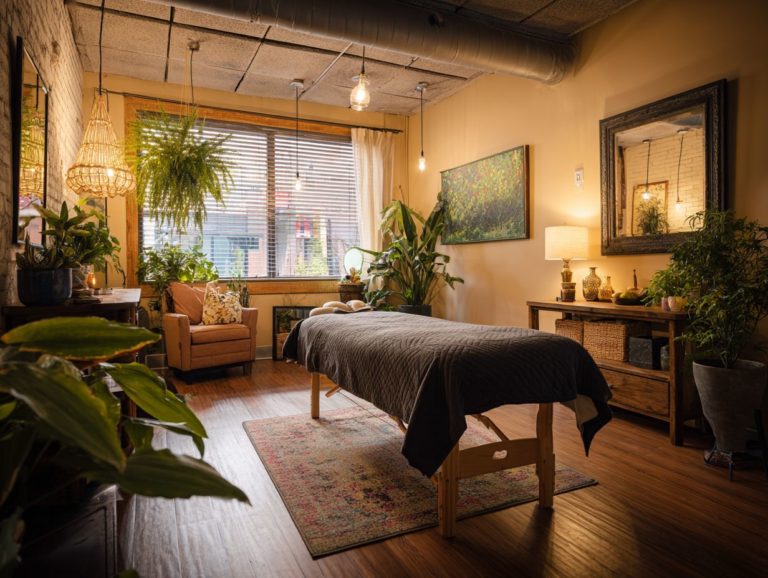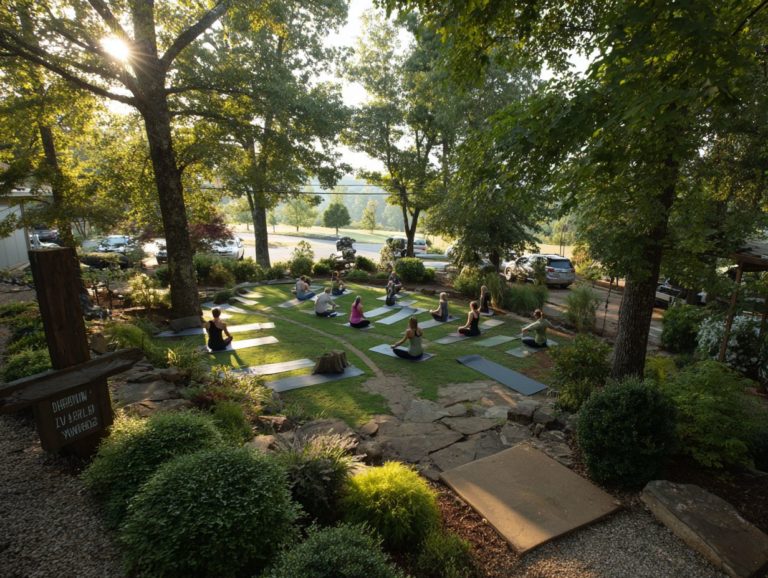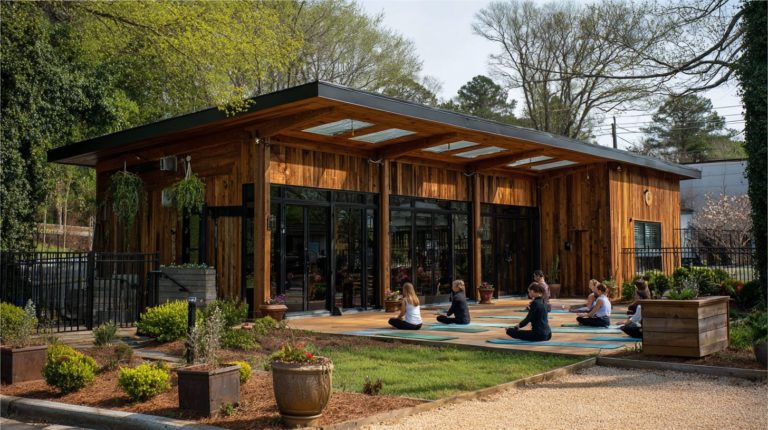Top 5 Holistic Health Centers in Oak Park, Illinois
Looking for natural healing options in Oak Park, Illinois?
Here are the top 5 health centers that treat the whole person, from Serenity Health’s calm space on Madison Street to Holistic Acupuncture’s focused sessions on Oak Park Avenue-all based on Google Maps listings.
These places offer services like acupuncture and integrative therapies, stand out from traditional medicine, provide key benefits, include prep tips, and highlight certifications to check.
Start your wellness path today.
Key Takeaways:
Contents
- 1 1. Serenity Holistic Health
- 2 2. Integrative Therapies Wellness Center – Dr. Reynes
- 3 3. Trinity Holistic Health Center
- 4 4. Synergy Integrative Health & Wellness
- 5 5. Holistic Acupuncture of Oak Park
- 6 What Sets a Whole-Person Health Center Apart in Oak Park?
- 6.1 What services do natural health centers usually provide?
- 6.2 How do whole-person approaches differ from standard medicine?
- 6.3 What Are the Benefits of Going to a Local Whole-Body Health Center?
- 6.4 How Can You Prepare for Your First Appointment?
- 6.5 Are there certifications worth checking for alternative medicine providers?
1. Serenity Holistic Health
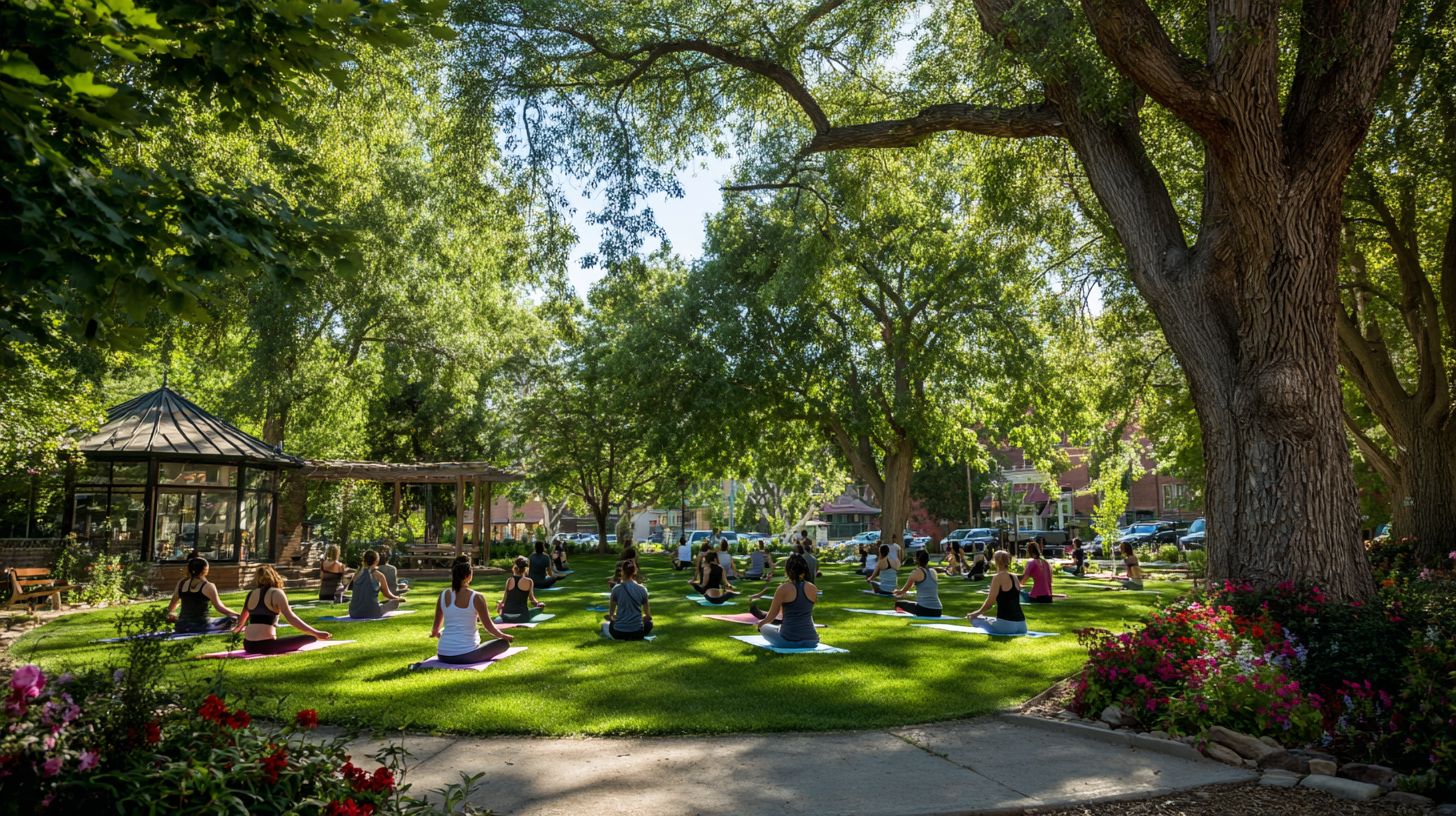
Serenity Holistic Health in Oak Park, Illinois, provides natural healing and emotional support. The center creates personal health plans with safe products for skin and body care. It also runs an online shop that sells supplements suggested by doctors.
Visitors find a peaceful place where natural therapies, such as acupuncture and herbal consultations, serve as the main parts of personal wellness plans that help the body heal itself. These practices emphasize emotional well-being through mindfulness sessions and stress-reduction techniques, fostering harmony between mind and body.
For people wanting gentle skin care, they offer non-toxic products without harsh chemicals that support healthy skin while protecting the environment-supported by studies from the Environmental Working Group showing risks of synthetic additives. Daily personal care routines are simplified with eco-friendly essentials that nourish from within.
The online dispensary provides great convenience by sending doctor-recommended supplements, such as herbs that help the body handle stress and vitamins, right to your door.
This makes it easy to include them in your daily health routine. In Oak Park’s community, this method aids physical health and improves general health, as shown by patient results in integrative medicine studies from the National Center for Complementary and Integrative Health.
2. Integrative Therapies Wellness Center – Dr. Reynes
Integrative Therapies Wellness Center in Oak Park is led by Dr. Reynes. The center offers wellness services that use functional lab tests and results to create treatments based on each patient’s needs.
These treatments support recovery and build strength, and the center links patients to community resources.
At this center, you get specific information from functional lab tests. These tests check biomarkers to find basic imbalances and suggest direct treatments.
Their resilience recovery programs draw from research-backed methods, such as the American Psychological Association’s resilience training modules, and help people regain their inner strength after difficulties like ongoing stress or health issues.
We work with experts like Dr. Taryn Cass, a well-known integrative medicine specialist at the PCC Community Wellness Center, to offer therapies such as acupuncture, nutritional counseling, and mindfulness practices.
These approaches handle current symptoms and support ongoing health by linking patients to nearby options, like Oak Park’s community health programs and support groups. This gives complete care that keeps people healthy and stops problems later.
3. Trinity Holistic Health Center

Trinity Health Center provides a helpful place for mental health counseling. Services cover individual sessions and family sessions for those facing more than one disorder. The counseling applies cognitive behavioral techniques.
In these individual sessions, clients engage in personalized cognitive behavioral therapy (CBT) to reframe negative thought patterns, manage symptoms of anxiety, depression, and addiction that often intersect. Therapists draw inspiration from Thrive Counseling Center’s integrative approach, emphasizing evidence-based practices like those championed by professionals such as Ms. Carlock, who highlights CBT’s role in building resilience.
Family counseling gathers family members to deal with relationship problems caused by multiple issues at once.
It encourages honest discussions and group methods for handling stress.
A study from the American Psychological Association shows that CBT works 60-70% of the time to treat co-occurring mental health and addiction disorders. This confirms the center’s overall results, where clear thinking improves physical health and family relationships, resulting in long-term emotional balance.
4. Synergy Integrative Health & Wellness
Synergy Integrative Health & Wellness helps people recover from substance use, especially opioid addiction. The center provides support through motivational interviewing, relapse prevention plans, and medication-assisted treatments like Buprenorphine and Naltrexone.
They use motivational interviewing, a client-centered method created by Miller and Rollnick, to create internal motivation and strengthen commitment to change. This helps people examine their mixed feelings about substance use.
A 2018 meta-analysis in the Journal of Substance Abuse Treatment backs this approach with evidence of better retention rates. It fits into their overall plan.
Relapse prevention planning draws from Marlatt’s cognitive-behavioral model, equipping clients with coping skills and triggers identification to maintain long-term sobriety.
For opioid addiction, medication-assisted treatments like Buprenorphine, which reduces withdrawal symptoms per NIH studies, and Naltrexone, blocking euphoria as evidenced by FDA trials, address physiological cravings. In a wellness approach that combines different methods, these parts work with nutrition advice and mindfulness exercises to support full recovery and cut the rate of returning to crime by as much as 50%, based on SAMHSA data.
5. Holistic Acupuncture of Oak Park
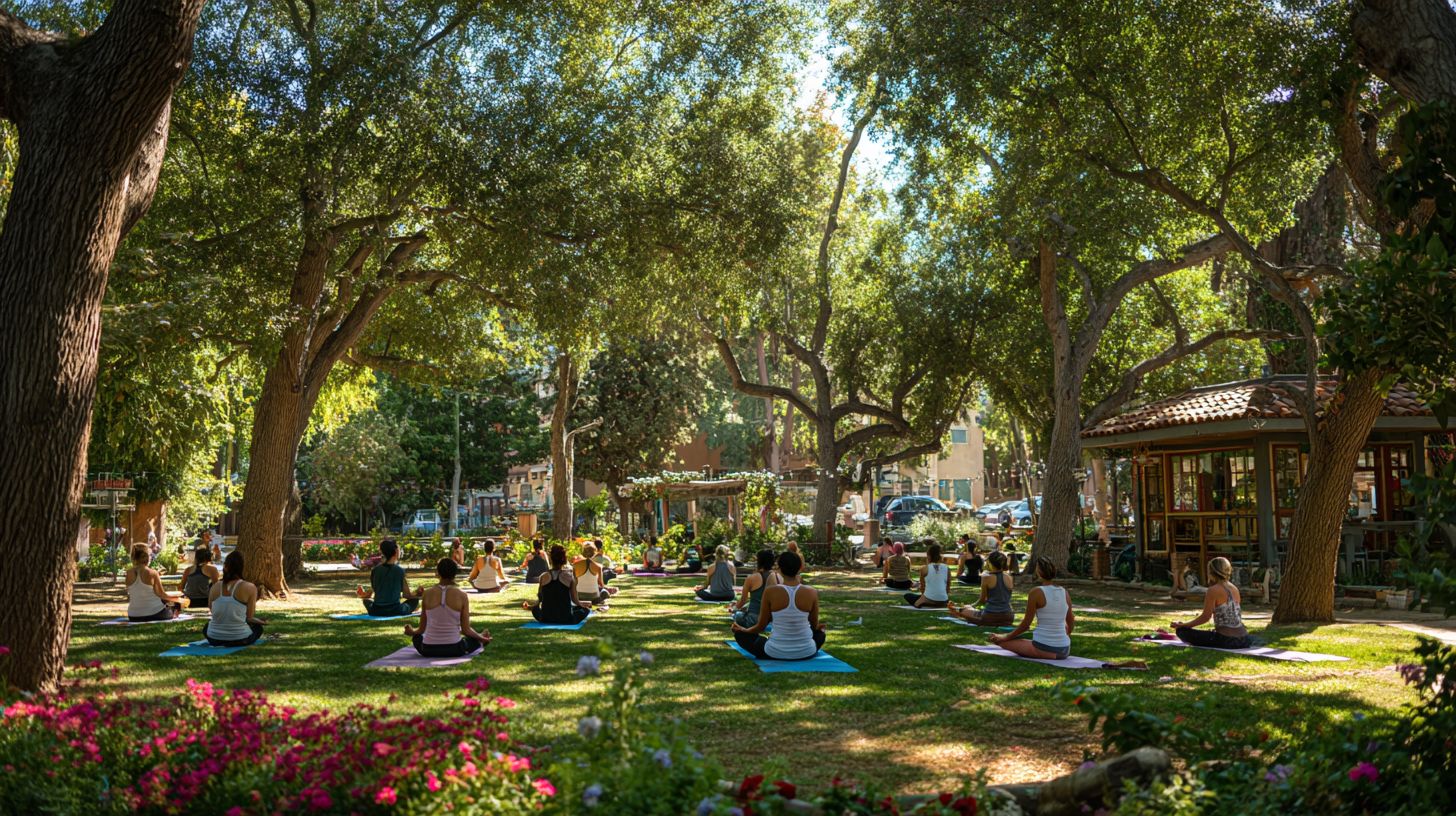
Acupuncture of Oak Park provides detox programs and naloxone training for young adults and people who are pregnant or have recently given birth. These fit into larger treatment plans that stress safe recovery methods.
These programs teach participants skills to save lives. They learn to spot opioid overdoses and give naloxone right away during emergencies. This matters for young adults in risky social settings.
For pregnant and postpartum clients, the programs focus on gentle detox methods that reduce body stress and help with bonding between mother and baby. The programs base this on studies from the National Institute on Drug Abuse (NIDA) that show naloxone cuts overdose deaths by up to 50% in community settings.
They work with centers like Lake Street Health Center to use acupuncture for easing withdrawal symptoms. This offers a helpful drug-free method that improves health and helps people stay committed to recovery over time.
This care model builds resilience and helps people take control of their health.
What Sets a Whole-Person Health Center Apart in Oak Park?
In Oak Park, Illinois, health centers provide crisis intervention and group services for people with substance use disorders and opioid addictions. These services center on patients.
The centers usually have Joint Commission accreditation to keep care at a high level. These centers accept various payment options including insurance accepted plans like Medicare and Medicaid, private insurance, self-payment, and even federal funding or cash pay arrangements, making wellness accessible to diverse community members.
What truly sets them apart is their commitment to integrating traditional and alternative therapies, fostering a supportive environment where individuals can achieve lasting emotional and physical balance amid the unique urban-suburban blend of Oak Park.
Their effective crisis intervention protocols deserve notice. They give fast, caring help during severe incidents, using research-supported practices like those suggested by the Substance Abuse and Mental Health Services Administration (SAMHSA).
Group services, meanwhile, encourage peer connections through facilitated sessions addressing opioid dependencies, helping participants build resilience and coping strategies.
Sticking to Joint Commission standards provides strong quality checks, covering staff training through patient outcome measurements. This improves care more than simply meeting the minimum rules.
This flexibility in payments-whether through federal grants or personal contributions-removes barriers, allowing one to prioritize recovery without financial strain.
These integrations set these centers apart from strict traditional medicine, opening the door to custom services, full benefits, and necessary steps for certification processes coming up- our guide to top holistic health centers in Evanston, Illinois demonstrates similar practical applications in a nearby community.
What services do natural health centers usually provide?

Health centers that treat the whole person usually offer several treatment programs, such as peer support, transitional services, self-help groups, and housing services. These programs rest on firm privacy rules to earn trust.
These services build a helpful space where people can meet others dealing with the same issues, building group ties through member-run talks and stories they exchange.
Transitional services guide them back into daily life, offering practical advice on employment, education, and relationship building to ease reintegration. Self-help groups help people grow by letting them control their recovery process, while housing services provide stable homes during difficult times.
Confidentiality remains paramount in every interaction, protecting sensitive information and allowing open dialogue without fear of judgment.
Drawing from models like the Mosaic approach, which integrates medical, social, and spiritual elements for whole-person care-as evidenced by studies from the Substance Abuse and Mental Health Services Administration (SAMHSA)-these centers promote long-term wellness. For example, a 2020 SAMHSA report shows how these systems cut relapse rates by up to 30% with support that fits each person’s needs and protects privacy. If you’re interested in similar holistic options closer to home in Illinois, those exploring the top centers in Normal often highlight comparable integrated services.
How do whole-person approaches differ from standard medicine?
Methods that treat the whole person differ from standard medical care. They focus on the full individual by using therapies such as Cognitive Behavioral Therapy, Motivational Interviewing, and Relapse Prevention.
These are often paired with medication-based treatments to create a steady recovery process.
Unlike traditional methods that zero in solely on quelling symptoms-such as prescribing opioids or antidepressants without deeper exploration- this integrated strategy nurtures the mind and body together.
Cognitive Behavioral Therapy, for instance, enables individuals to rewire unhelpful thought patterns, fostering lasting mindset shifts; a 2018 meta-analysis in the Journal of Consulting and Clinical Psychology found it reduces relapse rates by up to 50% in substance use disorders.
Motivational Interviewing sparks intrinsic drive by gently resolving inner conflicts, helping one tap into personal reasons for change, as evidenced by research from the National Institute on Drug Abuse.
Relapse Prevention then equips with practical tools to spot high-risk situations and build resilience, drawing from Marlatt’s foundational model.
When medication-assisted treatments like buprenorphine enter the mix, they stabilize physiology while therapies address emotional roots, creating harmony rather than isolation in healing.
What Are the Benefits of Going to a Local Whole-Body Health Center?
Going to a local health center that treats body and mind together provides help with recovery and counseling during mental health emergencies. This serves young adults, pregnant people and those who have recently given birth, and families through individual and family counseling.
You can get personal counseling that deals with the specific emotional difficulties during recovery, leading to full healing in a helpful group environment.
For young adults facing stress and anxiety, these centers provide therapies based on evidence, such as mindfulness and cognitive behavioral techniques. Studies from the American Psychological Association support them and show up to 70% better results in mental health.
Pregnant and postpartum individuals receive specialized care focusing on hormonal shifts and bonding, with resources drawing from the World Health Organization’s guidelines on maternal mental health, which highlight reduced risks of postpartum depression through integrated support.
Families benefit from sessions that strengthen relational dynamics, promoting collective well-being.
The community-based approach ensures accessible, stigma-free environments where participants connect, share experiences, and build resilience together, ultimately enhancing overall life quality without isolation.
How Can You Prepare for Your First Appointment?
Before your first visit to a health center, collect details about your past substance use, detox programs you’ve looked into, and any other conditions, similar to methods at Thrive Counseling or PCC Community centers.
To make the most of this initial session, start by documenting your substance use patterns, including frequency, duration, and types of substances involved, which helps clinicians assess for Substance Use Disorders (SUDs) as defined by the DSM-5 from the American Psychiatric Association.
Note any co-occurring mental health issues, such as anxiety or depression, since studies from the National Institute on Drug Abuse show that up to 50% of individuals with SUDs also experience these. Reflect on past detox attempts-what worked, what didn’t-and why you sought help now.
Think about askingHow does your program combine alternative therapies with treatments backed by research?” or “What help exists for people with two conditions?”
This preparation mirrors the structured intakes at places like Thrive Counseling, where personalized plans begin with thorough histories, or PCC Community Services, emphasizing community-based recovery starts backed by research from the Substance Abuse and Mental Health Services Administration (SAMHSA).
Are there certifications worth checking for alternative medicine providers?
Yes, check for certifications such as Joint Commission accreditation from doctors and therapists who treat the whole person. Choose people who teach others to give naloxone and lead support groups for those recovering from opioid addiction, like at Serenity Holistic.
These standards check facilities for patient safety, how well treatments work, and staff training to achieve good care. For naloxone education, look for endorsements from organizations like the Substance Abuse and Mental Health Services Administration (SAMHSA), which promotes its distribution to reverse opioid overdoses-backed by a 2022 CDC study showing a 30% reduction in overdose deaths in trained communities.
Group services should align with evidence-based models, such as those certified by the American Society of Addiction Medicine (ASAM). Always verify credentials directly on the Joint Commission’s website or through state health departments by following the methodology in our Acupuncture Credentialing: Certifications and Licenses guide, to confirm reliable, compassionate support at such centers, enabling you to make informed choices for lasting recovery.
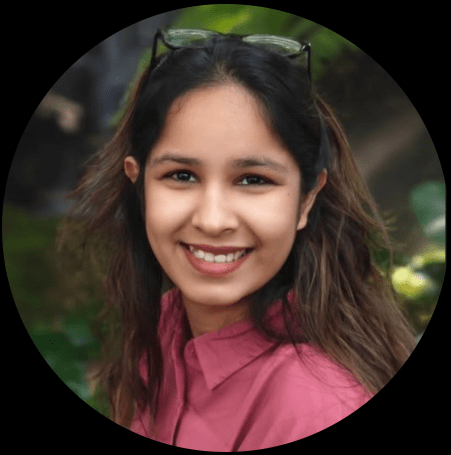
Sheetal Sharda has a background in CS. She got an interest in Holistic living back in 2018, and has since started exploring more into Naturapathy, Holistic Living, Yoga, and more. She got inspired to start SereneClinics to help people find reliable centers across the world.
